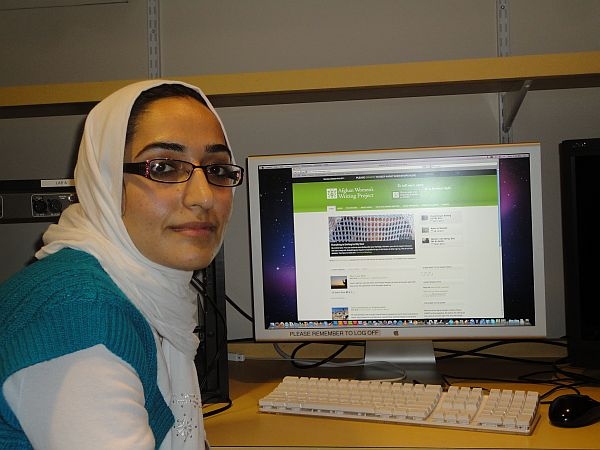
(Host) The Afghan Women’s Writing Project gives women a voice in a culture where they often don’t have one.
The project was started by an American writer who traveled to Afghanistan and saw the challenges women still faced even in the post-Taliban era.
Today dozens of Afghan women contribute writing that is published on the project’s website.
Among them is a student at Middlebury College.
VPR’s Steve Zind has this profile.
(Zind) The women write anonymously or use only their first names. All but a few are writing from Afghanistan – often without their family’s knowledge – and they’re concerned for their safety.
Organizers say the idea behind The Afghan Women’s Writing Project is to give these women a way to express themselves – and let English-speaking readers know what they’re experiencing.
Many of the poems, stories and essays on the website challenge the norms in a country where women’s lives are tightly controlled by men.
In one poem, a writer named Mahnaz refers to her culture’s patriarchal streak as "The Beast."
(Mahnaz Rezai) "It’s been a long time the Taliban have gone
but the true beast is still alive
The beast doesn’t read poems
He doesn’t love the rain
But he drains my veins…"
(Zind) This writer is not afraid to reveal her name. Mahnaz Rezai is a junior at Middlebury College.
She started writing for the Afghan Women’s Writing Project when she was still living in Afghanistan. She says she writes out of frustration over the lives of women in her country.
(Rezai) "I write about what makes me upset. Sometimes I wake up during the night and cry. The only thing that makes me calm and comforts me is to write."
(Zind) Rezai says her writing isn’t simply blowing off steam. She uses it as ammunition in arguments she has with Afghan men she knows.
(Rezai) "Mostly about the wrong cultural beliefs they have about women. That women should not work; that women should stay at home; that women should not wear bright colors. Very small things but these are important things, also."
(Zind) Rezai was born in Iran after her parents fled from neighboring Herat, Afghanistan, during the country’s civil war.
Her family returned after the fall of the Taliban. She wanted to work and teach. Her brothers told her she couldn’t – and that for her own safety she should wear a burka to hide her face when she left the house.
Razai refused and after some debate, she won her father’s support. Her mother, who can’t read or write, also encouraged her to work and study.
Rezai says her cultural background and religious beliefs made for a rough transition when she came to Middlebury College.
(Rezai) "My first year was challenging and difficult because I’m a religious person, I believe in God. Then I got to Middlebury College, which is a secular college and they would expect me sometimes to not write about God. At the same time, they would expect me to write about what I believe. So, it was a little bit challenging. I was confused how to cope with all of these things that I suddenly faced, like gay or lesbian issues. All these things were culture shock for me."
(Zind) After her senior year, Rezai hopes to attend graduate school. She’ll continue to write, she says, because change in her country will only come through education, and by women speaking up to challenge male attitudes.
(Rezai) "That’s the way they can understand. If you argue with them and you bring reasons for them. Otherwise if you keep quiet then they do whatever they want."
(Zind) Rezai says the Afghan Women’s Writing Project is an important outlet for carrying on that argument. She says she’d love to see a writing project for Afghan men, too.
For VPR News, I’m Steve Zind.
(Host) Rezai and other members of the Afghan Women’s Writing Project will be reading Friday evening at 6:30 at Community College of Vermont in Winooski.